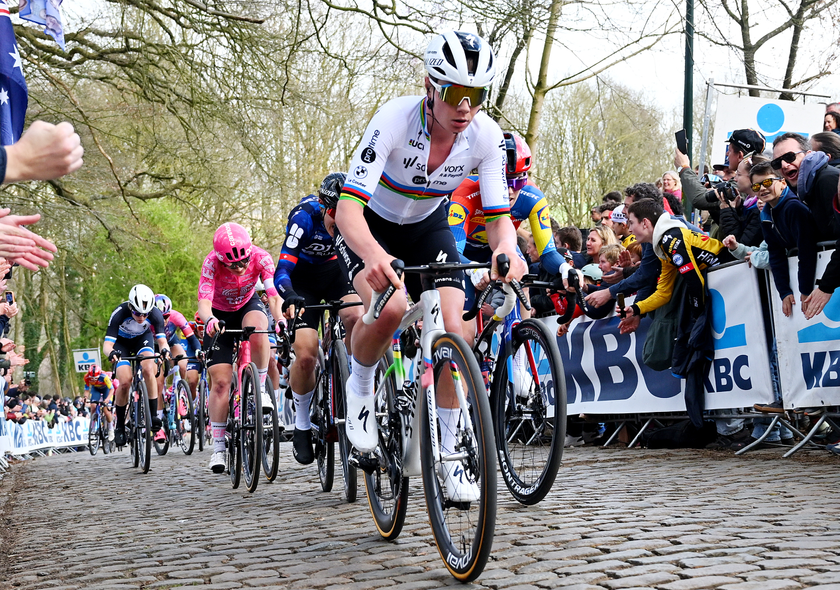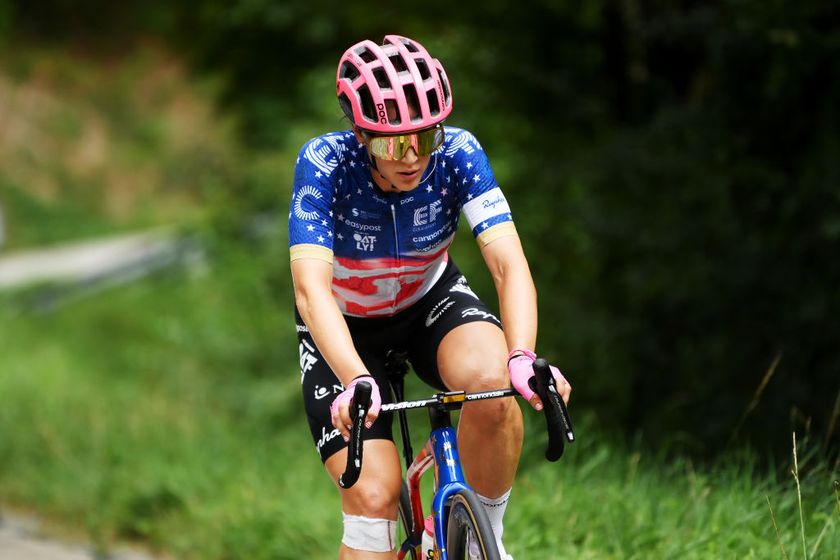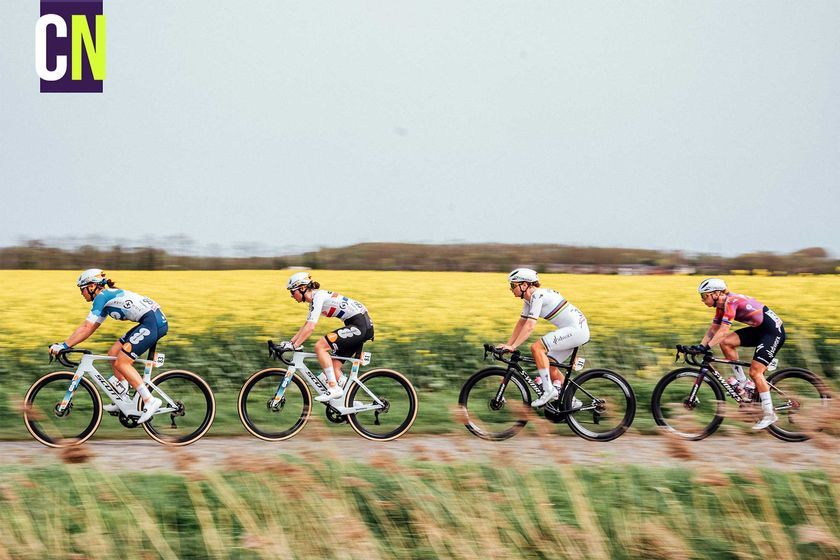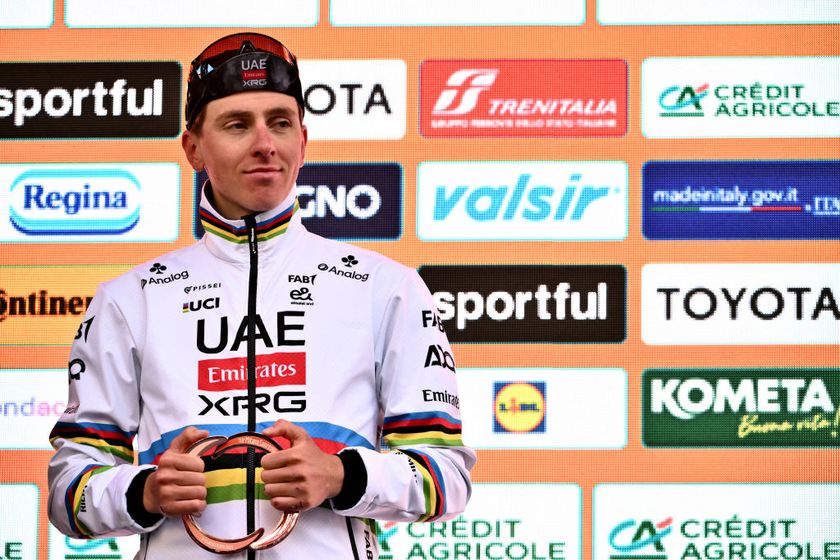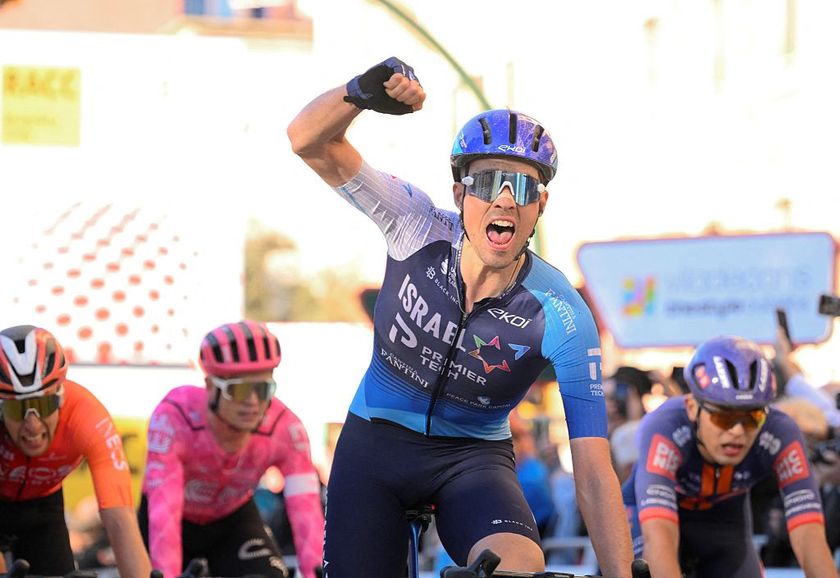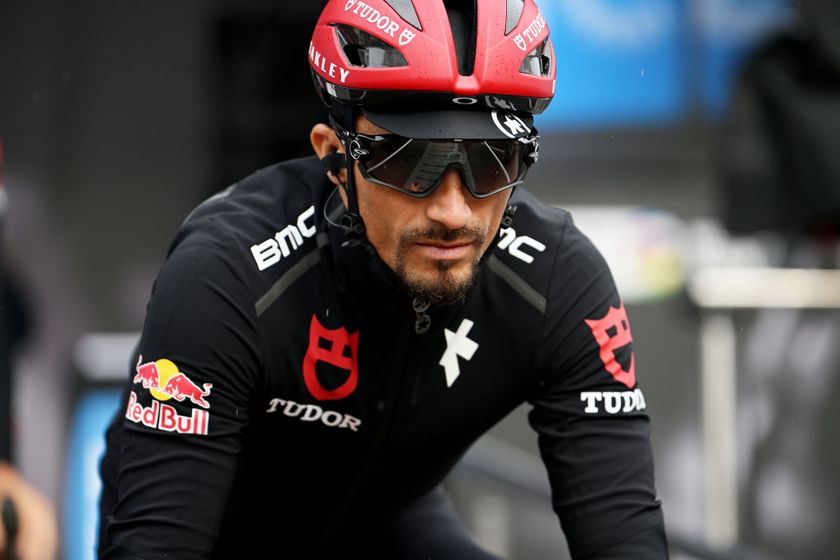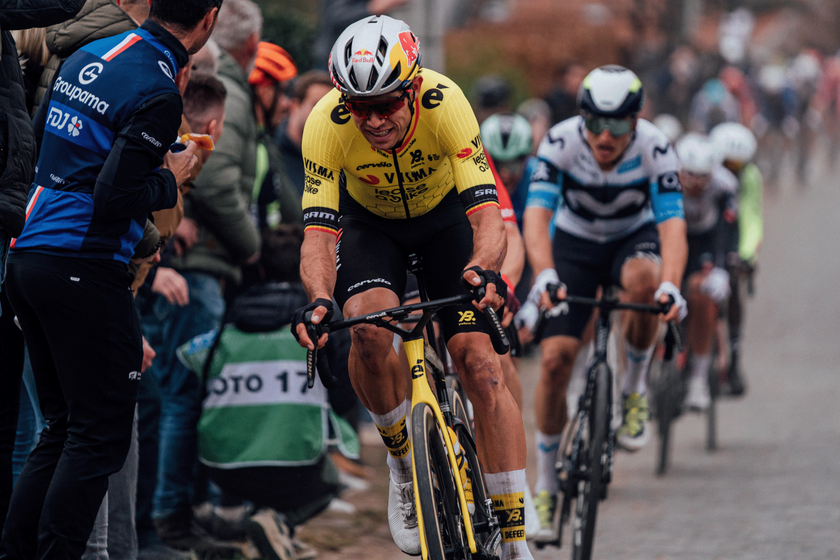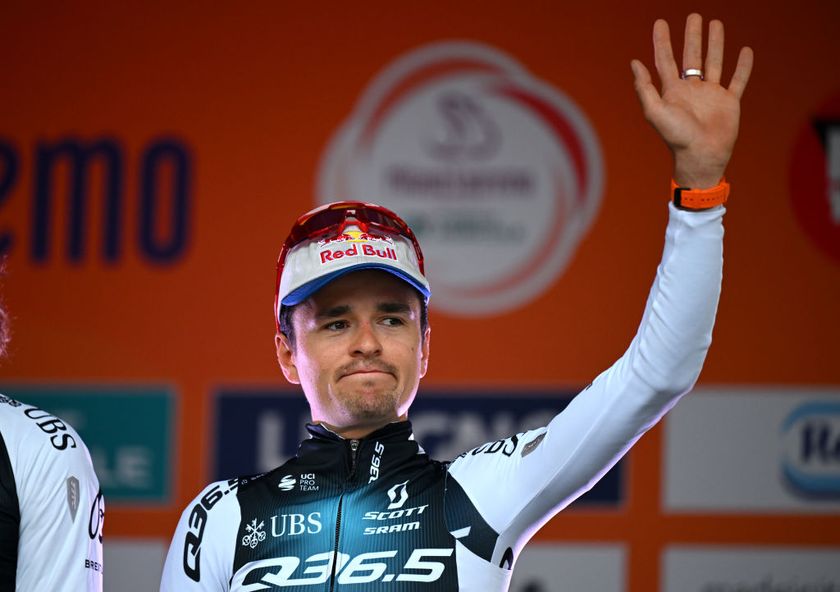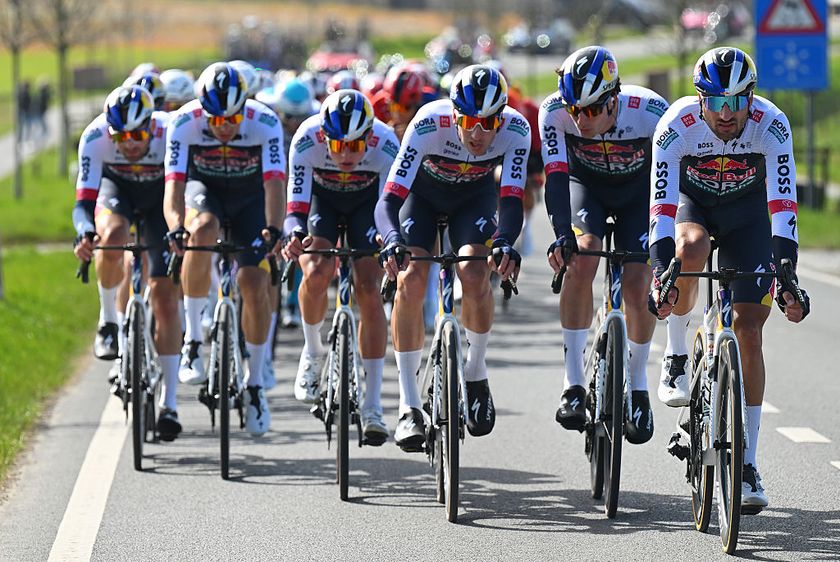Phinney: Sometimes you're beaten by a better squad
BMC lose team time trial world title to Etixx-QuickStep





Given that he departs for Cannondale-Drapac next season, it was perhaps inevitable that Taylor Phinney would draw the short straw and be delegated to speak on behalf of his teammates following BMC's second place in the team time trial at the UCI Road World Championships in Doha on Sunday.
To compound matters, Phinney was then mistakenly introduced as a newly-crowned world champion when he sat down at the top table in the press conference room, but the American shook off the error with good grace, holding up his silver medal to verify for those present that he and BMC had, in fact, placed second, 11 seconds behind Etixx-QuickStep.
"Obviously we're pretty disappointed. We came here to win but losing by 11 seconds to Etixx, they showed they were the stronger team. I don't think we had our best day as a group but we rode as intelligently as we could. I'm proud of the way that we rode," Phinney said.
Even before his career was almost ended when he broke his leg in a crash at the US National Championships in 2014, Phinney has spoken of his sport with a sense of perspective that can be rare among elite young athletes. Twelve months ago, Phinney was part of the BMC squad that landed this race on home roads in Richmond, but that victory did little to quicken the arduous rehabilitation process beyond boosting morale. By the same token, defeat in Doha had the feel of a disappointment, but nothing more.
"Just generally, I'm grateful to be here. Second place in the World Championships at the end of the day isn't so bad. The race is over, it's just a bike race in the desert," Phinney said. "We'd love to have won, but that's sport and that's competition. Sometimes you're beaten by a better squad."
Since its inception in 2012, the current iteration of the Worlds team time trial has been essentially a duel between BMC and Etixx-QuickStep, with the Belgian squad now leading the series 3-2. In that first race in Valkenburg four years ago, a breakdown in communication on the Cauberg proved fatal for Phinney and BMC, as they missed out by just 3 seconds.
This time around, at least, there will hardly be any agonising over tactical errors in the BMC camp. They were a fraction ahead of Etixx-QuickStep with 14 kilometres remaining, but were unable to match their rivals' power on the final section on the artificial island of the Pearl.
Get The Leadout Newsletter
The latest race content, interviews, features, reviews and expert buying guides, direct to your inbox!
"I think we all could have gone a little bit faster in the end but we were pretty maxed out by then, as you are in a team time trial," Phinney said. "Honestly, if I look back, it's almost like I've blacked out the last hour. It's one of those events where it's only afterwards that you can piece it together and figure out where you could have made time.
"Obviously if you look at the intermediate checks, we lost our time at the end, and that just comes down to whether you have enough horsepower in the end to push through."
Like Etixx-QuickStep and third-placed Orica-BikeExchange, BMC crossed the finish line with the minimum of four riders, something they had anticipated from before they set off. Physical strength, more than tactical acumen, seemed the deciding factor.
"We wanted to arrive to the Pearl with six riders, that was the plan but it's always kind of a loose plan. I think we knew that by the time we got into the finale, there would be four or five," Phinney said. "Everybody's deep in the pain cave by then, so strategy can only take you so far."
Some competitors in the women's team time trial earlier in the afternoon were visibly affected by the temperatures in excess of 35 degrees Celsius. Anouska Koster's crash was seemingly a result of heatstroke, and her Rabo-Liv teammate Roxane Knetemann was forthright afterwards in her criticism of the UCI's decision to run the event during the warmest part of the day. The men, by contrast, had the fortune of racing as the sun began to dip and temperatures abated.
"The women raced in the hotter part of the day, but by the time we started at 4 o'clock, the temperature was already coming down. It was definitely hot, but it wasn't overly," said Phinney, who was in Doha for a week ahead of the race with teammates Rohan Dennis, Manuel Quinziato, Joey Rosskopf, Daniel Oss and Stefan Küng. "That was our major heat preparation, training here for the week, and I think we were all pretty well acclimated."

Barry Ryan was Head of Features at Cyclingnews. He has covered professional cycling since 2010, reporting from the Tour de France, Giro d’Italia and events from Argentina to Japan. His writing has appeared in The Independent, Procycling and Cycling Plus. He is the author of The Ascent: Sean Kelly, Stephen Roche and the Rise of Irish Cycling’s Golden Generation, published by Gill Books.
